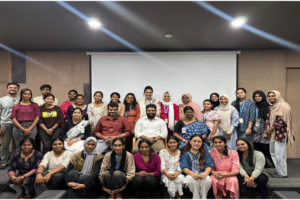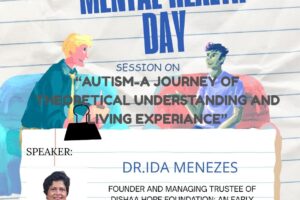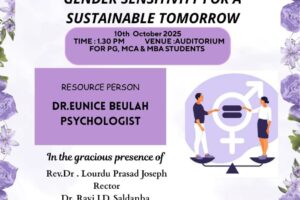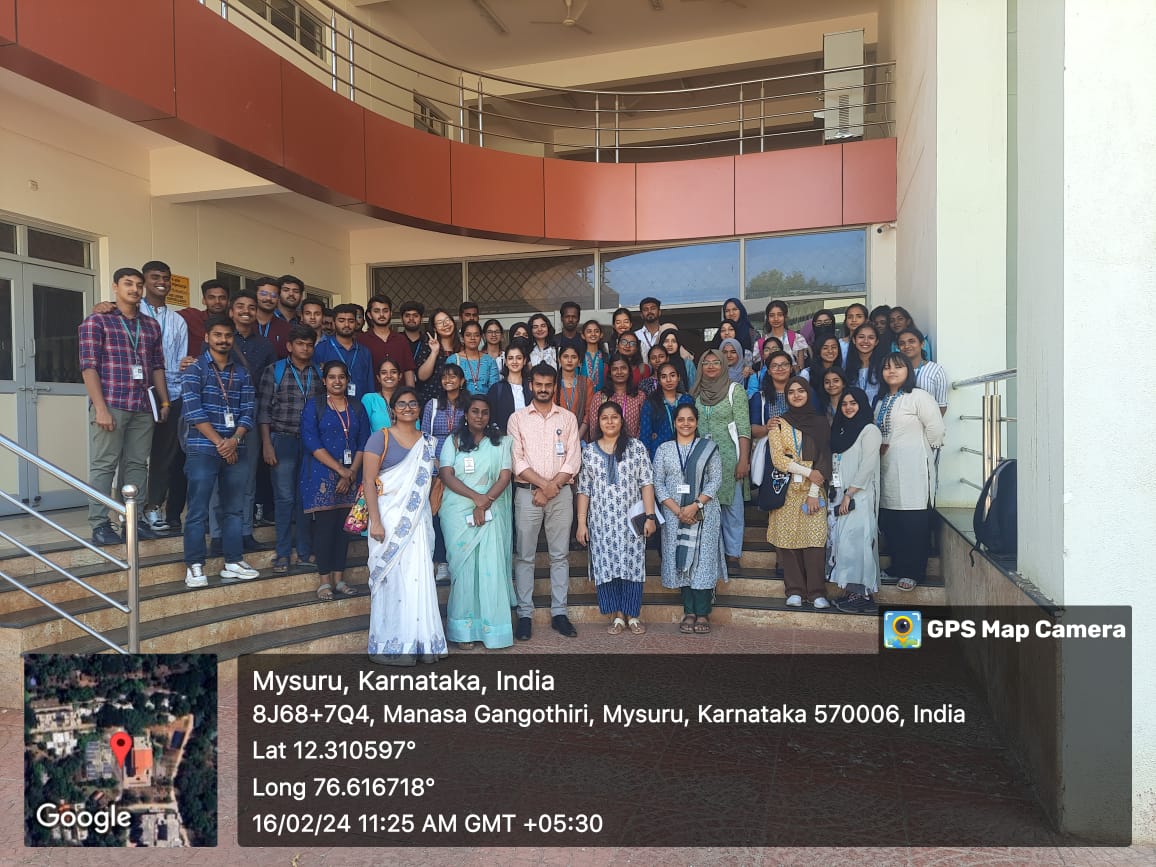
Field Visit Report: All India Institute of Speech and Hearing, Mysore
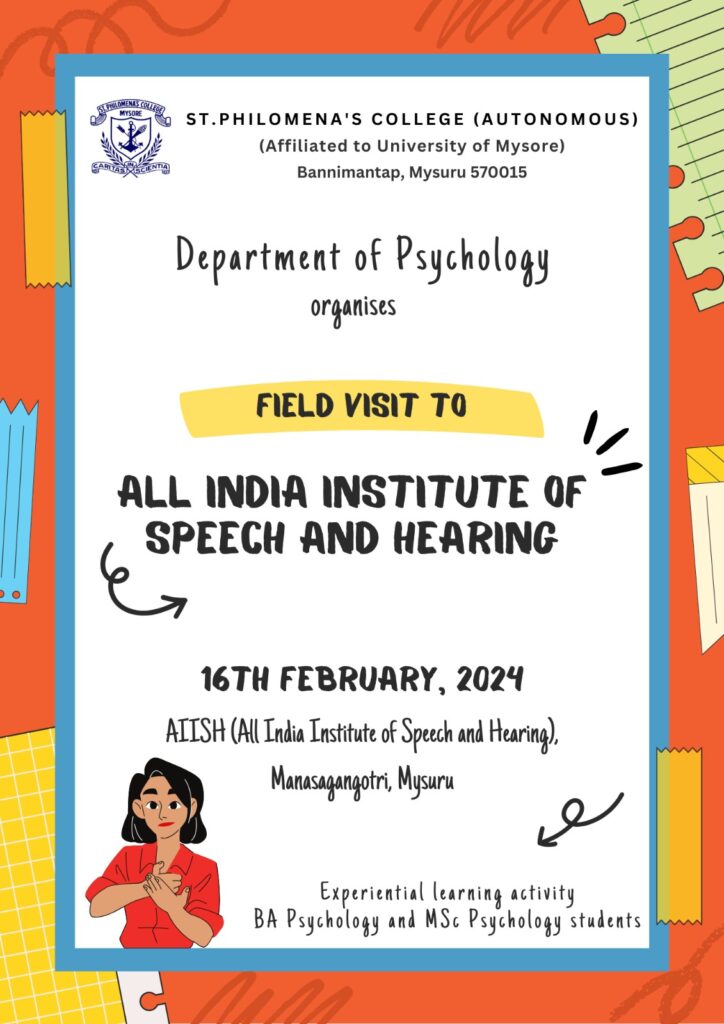
Introduction
The field visit to All India Institute of Speech and Hearing was to provide students from UG and PG with the exposure to the practical aspects and applications of Psychology. It focused on giving students a glimpse of the possible opportunities in their futures.
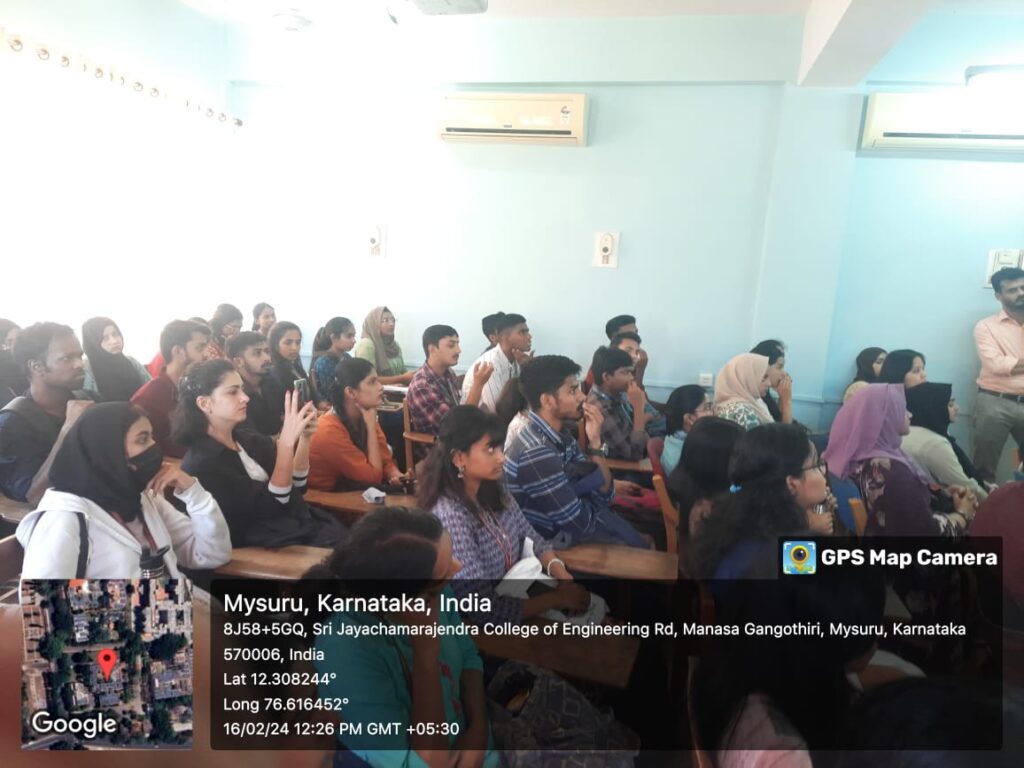
Objectives
- To educate students of the various prospects of the discipline of Psychology
- To visit the departments of Clinical services, Audiology, Clinical Psychology and Special Education
- To gain hands-on knowledge of the workings of each department and its functions.
Report
By Amana Muhammed (SL210701)
On February 16, 2024,students from the Psychology Department embarked on a field visit to the All India Institute of Speech and Hearing (AIISH) in Mysore. The purpose of the visit was to gain practical insights into the institute’s operations, facilities, and its contribution to the field of communication disorders. This report aims to comprehensively document the visit, including key information about AIISH, its departments, objectives, and services. The All India Institute of Speech and Hearing, established in 1966, is a premier national organization dedicated to human resource development, research, clinical care, and public education on communication disorders. Fully funded by the Ministry of Health and Family Welfare, Government of India, AIISH is situated on a sprawling 32-acre campus adjacent to the University of Mysore in Manasagangothri, Mysore.
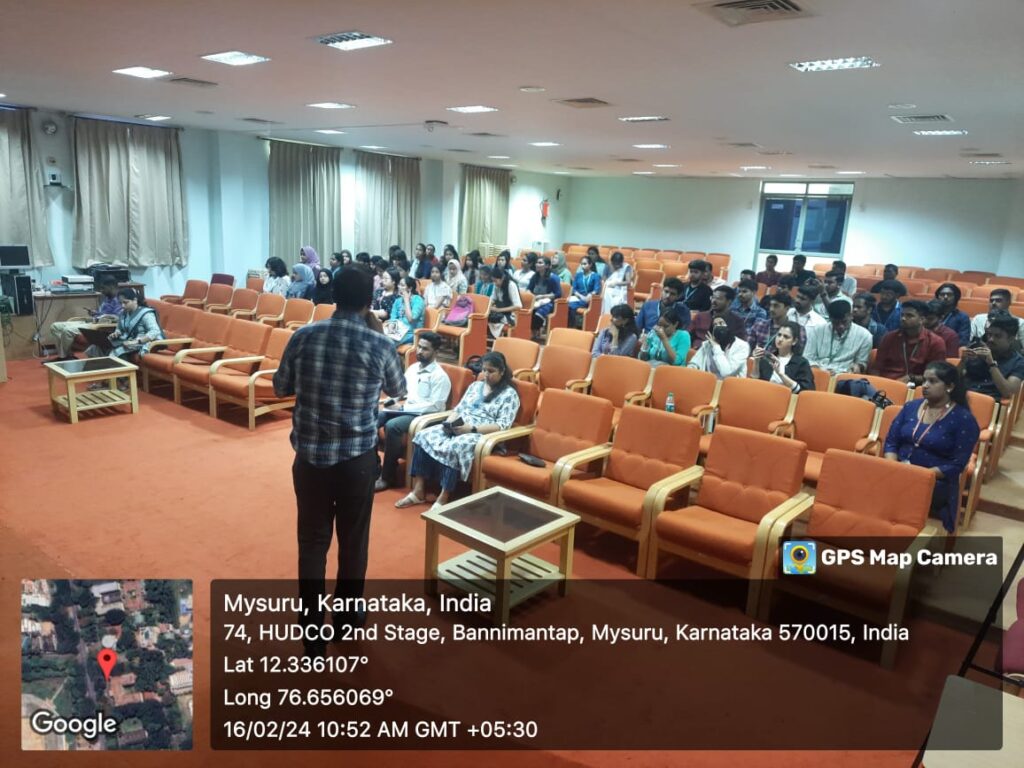
The institute’s major objectives include imparting professional training, rendering clinical services, conducting research, and educating the public on various communication disorders such as hearing impairment, mental retardation, voice, fluency, and phonological and language disorders. AIISH aspires to be a world-class institute for human resource development, research excellence, clinical services, and public education in the field of communication disorders. Its mission is to promote ethically sound human resource development, quality education, original research, clinical services, and public awareness. AIISH houses eleven departments, each equipped with state-of-the-art facilities to offer interdisciplinary research and training. These departments include:
- Audiology
- Clinical Psychology
- Clinical Services
- Electronics
- Material Development
- Otorhinolaryngology
- Special Education
- Speech Language Sciences
- Speech-Language Pathology
- Prevention of Communication Disorders (POCD)
- Tele-center for Persons with Communication Disorders (TCPD)
The institute provides a wide range of clinical services catering to individuals across various age groups with communication disorders. These services include assessment, treatment, and rehabilitation for disorders such as voice, phonological, fluency, and prosodic disorders, craniofacial anomalies, neurogenic speech disorders, autism spectrum disorders, learning disabilities, mental retardation, and syndromes.
During our field visit to AIISH, we had the opportunity to explore various departments within the institute, each offering unique insights into the diagnosis, treatment, and research related to communication disorders. Below is an elaboration of our experiences during the visits to the Department of Audiology, the Department of Clinical Psychology, and the Department of Special Education:
1. Department of Audiology:
Upon entering the Department of Audiology, we were immediately struck by the magnitude of its facilities. The department houses one of the largest audiological setups in Southeast Asia, with more than 20 testing units available for various auditory assessments. The setup is meticulously designed to accommodate a considerable number of patients simultaneously, reflecting the institute’s commitment to efficiency and accessibility in healthcare delivery.
The department’s emphasis on professional training was evident through the presence of advanced audiometers and state-of-the-art equipment from renowned manufacturers, facilitating various audiological tests such as pure tone audiometry, speech audiometry, and visual reinforcement audiometry. Moreover, the availability of advanced physiological and electrophysiological testing, including immittance audiometry and auditory electrophysiological equipment, underscored the department’s dedication to comprehensive diagnostic services.
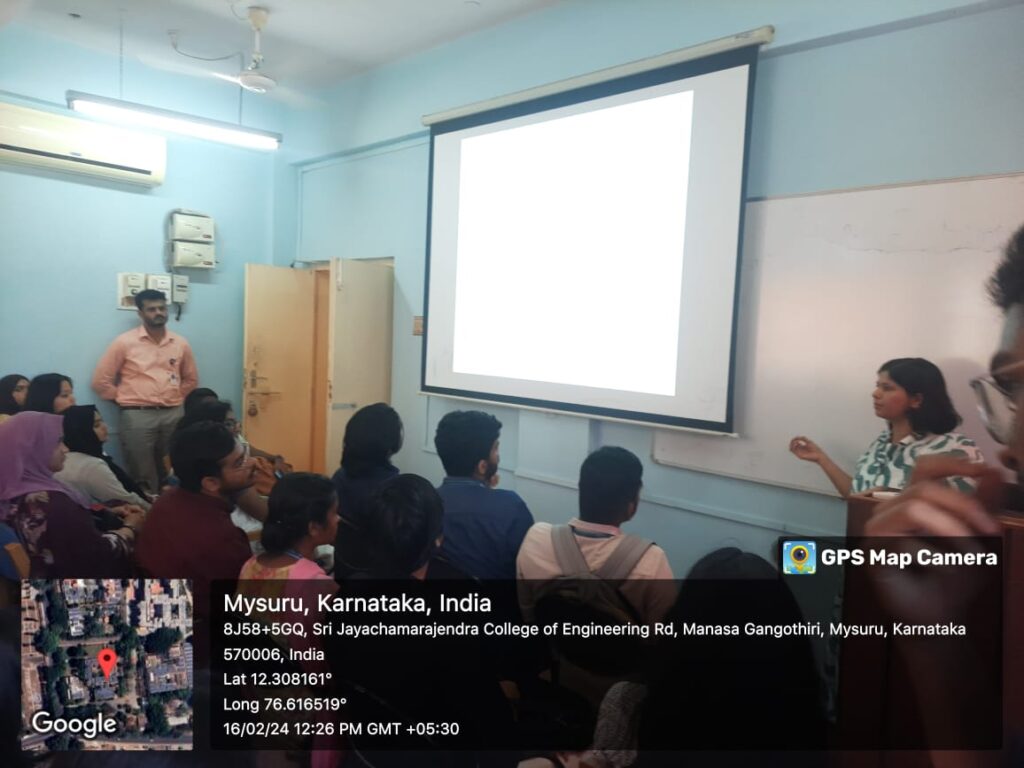
2. Department of Clinical Psychology:
Stepping into the Department of Clinical Psychology, we were greeted by an atmosphere conducive to therapeutic intervention and psychological support. As one of the oldest departments at AIISH, it plays a pivotal role in addressing the psychosocial dimensions of communication disorders.
The department’s activities are centered around three key pillars: education, research, and clinical services. Through various manpower development programs, the department aims to elucidate the intricate relationship between psychosocial factors and communication behavior, fostering a deeper understanding among students and professionals alike.
We were particularly impressed by the department’s commitment to applied research, focusing on actionable insights into the psychological aspects of speech, hearing, language, and communication behavior. The integration of diagnostic and therapeutic services reflects a holistic approach to client care, aimed at optimizing the quality of life for individuals affected by communication disorders.
Furthermore, the department’s engagement in public education activities underscores its role as a catalyst for awareness and advocacy in the field of communication disorders. By disseminating information and promoting dialogue, it strives to destigmatize these disorders and promote inclusivity within society.
3. Department of Special Education:
The Department of Special Education at AIISH embodies the institute’s vision of inclusive education and empowerment for individuals with communication disorders. As we entered the department, we were greeted by a vibrant learning environment adorned with illustrations, interactive games, and multidimensional paintings, creating an immersive experience for students.
Established in 2005, the department serves as a hub for training programs, research initiatives, and educational services catering to children with special needs. The staff’s dedication to human resource development was palpable, with efforts directed towards equipping students with the necessary skills and knowledge to facilitate inclusive education.
A notable aspect of our visit was the emphasis on research and development work within the field of special education. Through collaborative research endeavors and training programs, the department seeks to advance knowledge and best practices in supporting children with communication disorders.
Furthermore, the department’s commitment to public education and awareness was evident through orientation programs, sensitization workshops, and dissemination of resources to various stakeholders. By fostering dialogue and promoting understanding, it endeavors to create a more inclusive and supportive environment for individuals with communication disorders.
The visit to AIISH and its department provided invaluable insights into the comprehensive approach towards addressing communication disorders, encompassing professional training, clinical services, research, and advocacy. As we reflect on our experiences, we are inspired by the institute’s unwavering commitment to excellence and innovation in the field of speech and hearing sciences. AIISH shines through its unwavering commitment to individuals, not just as a beacon of hope, but as an example of empowerment.

